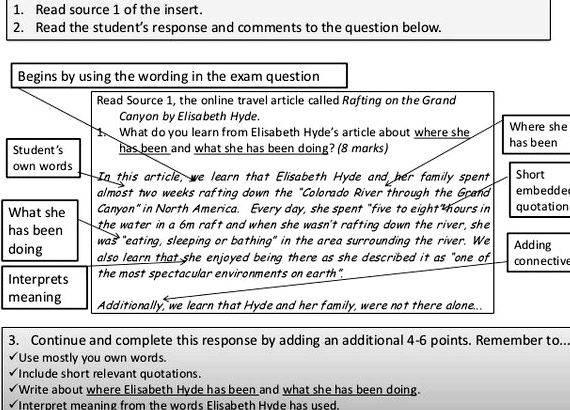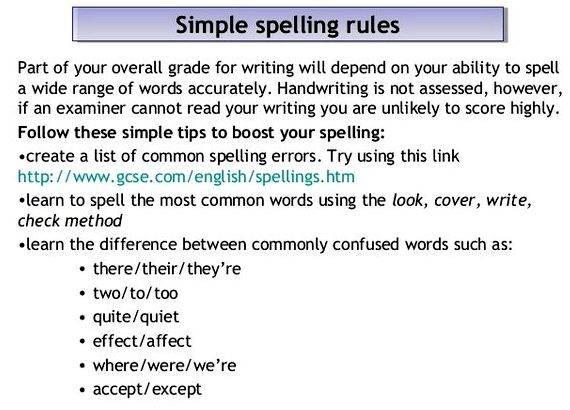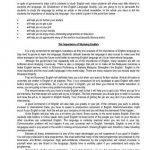We all know how stressful revising for GCSE English exams can be, but it really is true that planning and preparation are everything!
Here are my top 6 tips for PREPARING for your GCSE English exams:
- Get to know your syllabus well and make a list of problem areas: Whether your syllabus is AQA or not, make sure you know the objectives and skills required. Your teacher should explain these clearly to you. It is important to place equal importance on each component to ensure an all round successful grade. For example, with AQA you are required to complete 3 main modules: Speaking, Writing and Reading. Before you get down to the nitty-gritty parts of revision, be sure to make a list of the topics or poems you may not be comfortable with. Likewise, make a checklist and simply tick off topics and poems that you are happy and comfortable with. You will have a clearer vision of what you should be studying, and will surprise yourself about where your strong points lie.
- Make a realistic and practical revision timetable: Try to balance out your revision of poetry as well as creative writing, not forgetting revision time for your other subjects! Be realistic about your revision and spread out topics, don’t cram them in, for example doing a practice writing task will take about an hour and 15 minutes, and poems can be grouped and spread out over a week. You should ideally be spending between 2-3 hours revising for your English exam per day, an hour of which should be dedicated to exam practice. Don’t forget, it is important to take regular breaks in between revision!
- Try different methods of revision: Sometimes revising in a singular way can often be tedious and tiring, so it is best to try different ways of revising for your GCSE English exam. Colourful notes can be effective if you learn better visually, likewise keywords, wall displays and tables grouping poems together can also work as they trigger the memory. Some students feel that group revision sessions work for them because they learn well orally by talking about their opinions. In this case, getting together with friends and working in groups is a good method for revision as each can learn from their peers as well as voice unique ideas.
- Don’t neglect your written coursework: It is the case that students may neglect their written coursework, but you should remember that it can make all the difference to your overall grade. I feel that coursework can in some cases boost your final mark immensely, simply because you have the opportunity to draft and re-draft. Getting family or friends to check over your coursework is also very useful. Proof-reading is something I am very used to, as it is essential at undergraduate level when writing essays.
- Make sure you know your poems: Whether it is Duffy, Armitage, or poems from other cultures, make sure you have a good grasp of the poems you will be assessed on in the exam. A method which has proven to be a good way of managing this is through analysing poems in categories of: Subject matter, Speaker, Language, Form and Structure, and Tone .
- Practice makes perfect, so practice possible questions or attempt past papers: Try and complete practice papers under timed conditions, as there is no better way of getting a real taste of how your exam will be. Set aside an hour and a half and time yourself to complete a paper within that time. Past practice papers are available from the AQA website: aqa.org.uk/admin/qp-ms_gcse.php. and all you need to do is select the specification. Practice papers can also be found in most syllabus focused revision guides. You could even use newspaper or magazine articles to write about as practice for your English Language exam. It would also be in your interest to get friends to check over your answers and exchange suggestions for improvement as this can prove quite constructive.

Also, never be afraid to ask for help, even the most successful writers and journalists of today need a helping hand! If you have any queries please do not hesitate to contact me, I will be more than willing to help. Plus, don’t knock what teachers say, it is true, reading helps! It not only helps enhance your vocabulary, but also aids your writing skills.
Here are my top 5 tips to remember DURING EXAMS which will secure you a successful grade:
- Make sure you read the questions carefully: The simplest mistakes are made from not reading questions carefully. It helps to underline or highlight the main objectives of the question in the exam, so that you can steer your answer to them.
- Plan out your answer and time: I cannot stress to you how important it is to plan out your answers to written questions, it is a must, and will guarantee you a great grade. Take 5 minutes to create a short plan, to ensure you have a clear structure to your argument. It also may help to make a small checklist of vital information to include in your essay before you begin to ensure that you do not miss out any key info. Remember, if you are not clear of your argument in your mind, then this will be reflected in your written answer.
- PEE: No, it’s not what you’re thinking! PEE is the formula I teach students to make sure they have all the right components to write a great essay. It is as follows:
- P-Point: State clearly what point you are making
- E-Evidence: Give an example whenever possible of what you have made a point about, in quotations.
- E-Explanation: Make sure you explain why the quote is relevant and how it relates to the point that you first made.
PEE will make a good basis for your structure and will make your essay flow much better.
- Write accurately: Think carefully about what it is you want to get across and how you are doing it during the exam. Always try to express clearly what you want to write. Only use savvy vocabulary that you understand and that are actually relevant to your point, otherwise it will not produce the desiring effect.
- Always proof-read: This is a must! Give yourself about 5-10 mintues after completing your written task in the exam to proof-read your work at least twice, checking for spelling, grammar, and overall flow. Check that it makes sense and be sure to cross out sentences that are not as clear or that you have realised, are not really necessary. You could pick up easy marks by refining your written work in this way.
Don’t forget, there is no such thing as a wrong answer, express yourself and don’t be scared to write down what you think of poems, etc. As long as you can justify your points and relate it to the question, examiners will give you some credit for it. I always encourage originality in students!
Lastly, don’t panic! You will have nothing to worry about if you have revised thoroughly and know your poems well. Use your exam as an opportunity to show examiners exactly how articulate and original your writing is 🙂





 Article based phd dissertation database
Article based phd dissertation database Make money writing spiritual articles
Make money writing spiritual articles Ian rankin writing advice articles
Ian rankin writing advice articles Directed writing article cleanliness campaign
Directed writing article cleanliness campaign John gardner writing advice articles
John gardner writing advice articles






